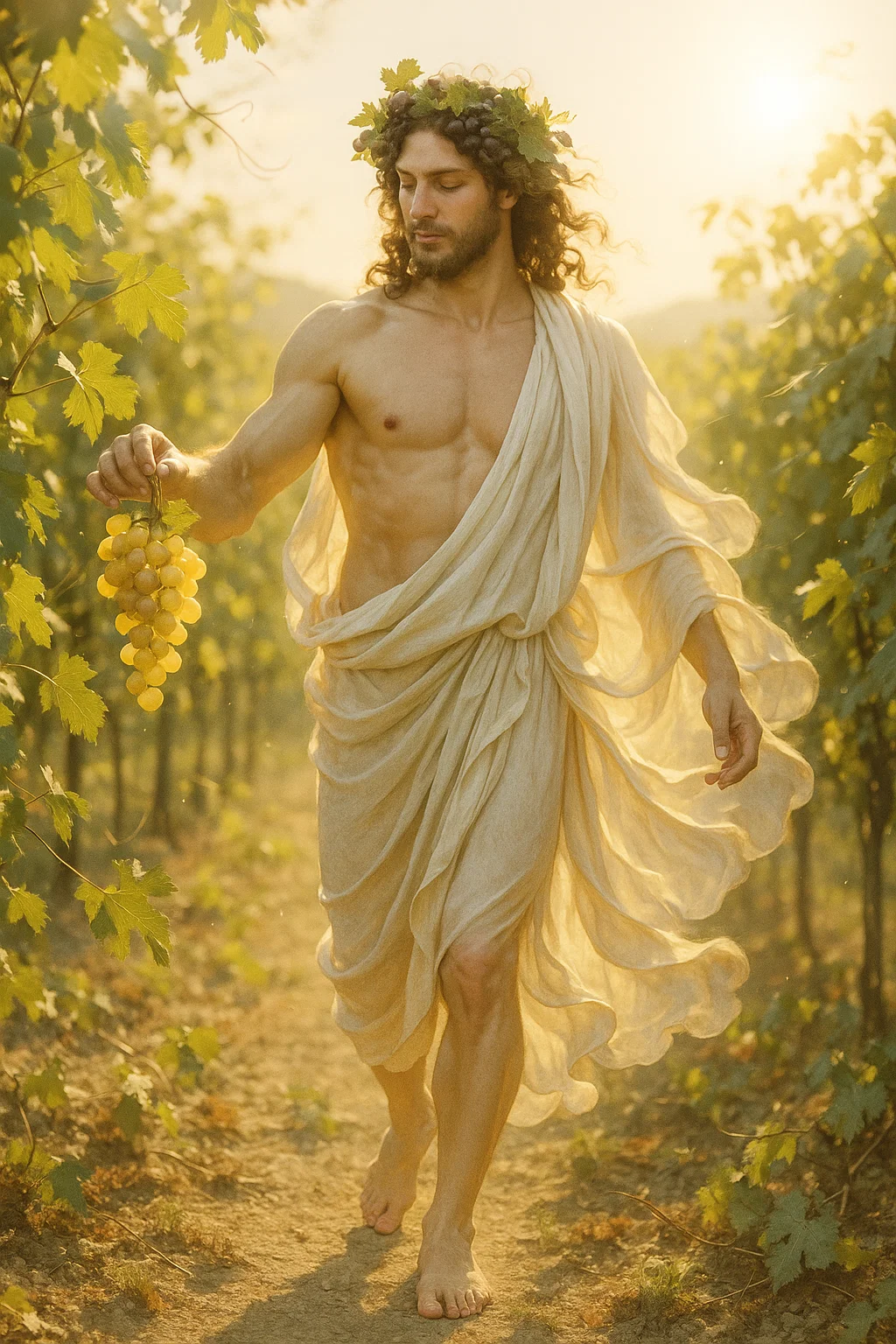
📘 Table of Contents
- The Boundary-Crossing God, Dionysus
- Birth and Growth – Between Human and Divine
- The God of Madness Shakes Civilization
- The God of Festivals and Art – Creative Destruction
- Key Episode: The Tragedy of Pentheus
- The Symbolism and Meaning of Dionysus
- Dionysus in the Modern World
1. The Boundary-Crossing God, Dionysus
Dionysus is not merely the god of wine and revelry. He embodies madness, chaos, instinct, and pleasure, while also representing art and creation. Among Greek deities, he is one of the most complex, constantly traversing the boundaries between human and god, male and female, order and chaos. Dionysus raises profound questions about human nature and art.
2. Birth and Growth – Between Human and Divine
Born of both a mortal and a god, Dionysus is a dual-natured being. His mother Semele was a Theban princess loved by Zeus. When Hera, Zeus’s wife, found out, she disguised herself as an old woman and planted suspicion in Semele's mind: “If he’s really Zeus, ask to see his divine form.”
Semele, swayed by Hera’s suggestion, demanded proof. Bound by his oath on the river Styx, Zeus revealed himself in thunder and lightning, killing Semele instantly. Zeus rescued the unborn Dionysus from her womb and sewed him into his thigh, from where Dionysus was born again—thus known as the "twice-born god." This dual birth symbolizes his liminality between life and death, chaos and rebirth.
3. The God of Madness Shakes Civilization ⚡️
Dionysus challenges the structured world crafted by other gods. In every city he enters, people fall into frenzy, worshipping him through ecstatic rituals. These aren't mere ceremonies but outbursts of repressed instincts and emotions. His madness is destructive yet holds the seeds of liberation and healing.
4. The God of Festivals and Art – Creative Destruction 🎨
The origins of Greek theater trace back to Dionysian festivals. Masked performances became transformative experiences where humans explored alternate identities. Through theater, music, and poetry, Dionysus taps into the primal roots of human creativity.
5. Key Episode: The Tragedy of Pentheus 🏛️
Pentheus, the young king of Thebes, mocks Dionysus and sees him as a fraud. Valuing logic and order, Pentheus tries to suppress Dionysian rituals. But Dionysus, instead of retaliating impulsively, sets a cunning trap.
Disguised as a handsome stranger, Dionysus captivates Pentheus, luring him to observe the Bacchic rituals firsthand. Mesmerized, Pentheus dons women's clothes to spy on the frenzied Maenads. Dionysus casts an illusion, making the Maenads see Pentheus as a beast.
Tragically, his own mother, Agave, under Dionysus’s spell, tears him apart with her bare hands, believing him to be a lion. She returns proudly, unaware she's holding her son’s severed head.
This tale doesn’t merely warn against defying gods—it illustrates the consequences of repressing human instincts. Pentheus represents rigid rationalism, and Dionysus, unbridled passion. Suppressed emotions eventually erupt, often catastrophically.
6. The Symbolism and Meaning of Dionysus 🌿
Dionysus symbolizes the savior of the marginalized: the mad, the artist, the outsider. He represents a balance between reason and instinct, civilization and nature. Through him, we’re reminded that embracing our full humanity includes acknowledging chaos, emotion, and art.
7. Dionysus in the Modern World
Modern life still reflects Dionysian elements—in festivals, in art that pushes boundaries, in the need to escape daily constraints. Dionysus isn’t just a myth but a psychological archetype reminding us of freedom, creativity, and the thin line between reason and madness.
'고전의 확장 > Greek & Roman Mythology' 카테고리의 다른 글
| Episode 14: Helios vs. Apollo – The Confusion of Sun Gods (0) | 2025.07.18 |
|---|---|
| Episode 13: Demeter and Persephone – The Reason Seasons Were Born (0) | 2025.07.17 |
| Episode 11 – Hephaestus: The Crippled but Brilliant Blacksmith God (0) | 2025.07.12 |
| Episode 10 – Apollo and Artemis: Twin Deities of Sun and Moon (0) | 2025.07.09 |
| Episode 9 – Athena: The Goddess Born from Zeus’s Head (0) | 2025.07.06 |



